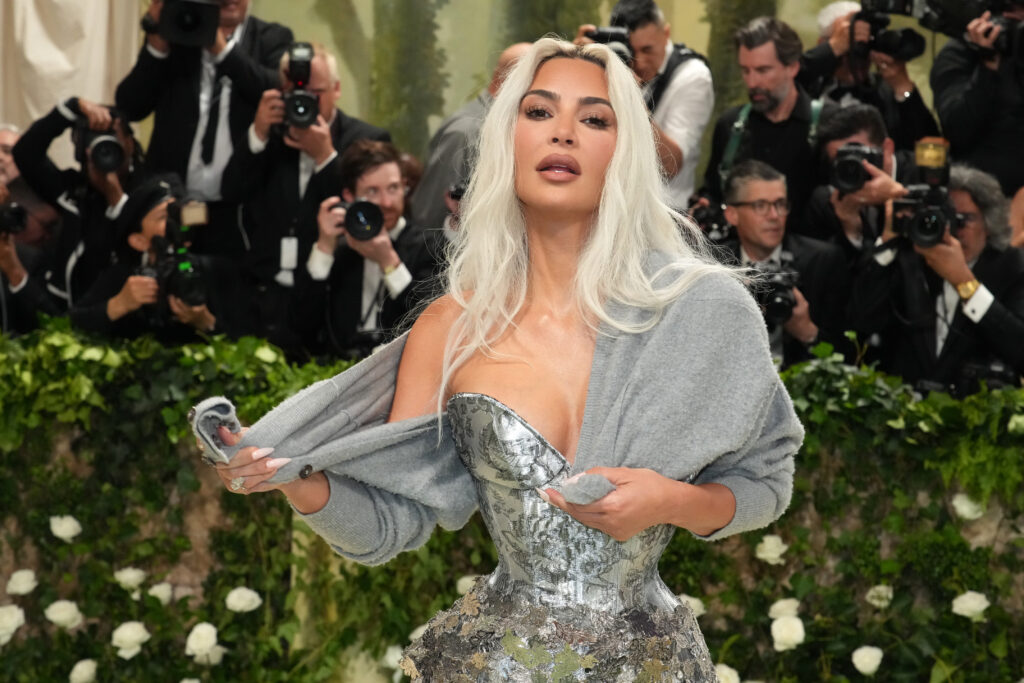Crypto influencers frequently lack genuine expertise in the realm of crypto-assets. Many are well-known entertainers who are compensated to endorse various crypto projects and in some cases, receive payment for the endorsement.
It’s worth noting that the Securities and Exchange Commission disapproves of this practice, particularly when influencers promote securities or trading platforms.
These crypto influencers who have made significant missteps in promoting projects that have since become—at best—entirely worthless.

Kim Kardashian
Kim Kardashian was paid $250,000 to promote EthereumMAX on Instagram, a crypto token that tried to leverage Ethereum’s name recognition to its benefit. Kardashian faced a hefty penalty of $1.26 million in fines from the SEC.
EthereumMAX once had a market cap of $250 million but has since plummeted to near worthlessness. Other notable figures who promoted the token include as well as boxing champion Floyd Mayweather and music producer DJ Khaled, both of whom also found themselves facing actions from the SEC.
Ben Armstrong of ‘BitBoy Crypto”
Ben Armstrong, once branding himself as the “superhero” of crypto influencers with an X following of over 1 million, has seen his reputation decline due to questionable decisions—including promoting crypto projects that turned out to be scams.
Armstrong announced he quit paid promotions in January 2022, but his troubles didn’t end there. Armstrong was arrested during a confrontation with a former business partner—while live streaming.
Subsequently, he parted ways with the company behind the BitBoy Crypto brand. Because Armstrong an integral part and closely associated with the company, it was forced to rebrand in 2023.
In August, Armstrong agree to pay $40,000 to settle a class-action lawsuit for promoting unregistered securities.

Tom Brady, Madonna, and Gwyneth Paltrow
Tom Brady and several celebrities, including Madonna, Gwyneth Paltrow, and David Ortiz, promoted the now-defunct FTX exchange, which collapsed in November 2022.
They are facing class-action lawsuits from investors whose assets were frozen. Plaintiffs allege they failed to disclose their compensation for endorsing FTX, violating SEC regulations.
FTX founder Sam Bankman-Fried and Alameda Research CEO Caroline Ellison are serving prison sentences for their roles in the collapse.
FaZe Clan
FaZe Clan faced significant backlash after promoting the crypto token Save The Kids, which was quickly identified as a scam.
Despite its positive name, the project turned out to be a pump-and-dump scheme, allowing promoters to inflate its value before cashing out on unsuspecting investors.
In response, FaZe Clan suspended or removed members involved in the promotion, with former member Frazier Kay publicly apologizing for misleading his audience.
Jimmy Fallon
Jimmy Fallon showcased his Bored Ape NFT on The Tonight Show. Paris Hilton was his guest, and explained to the audience what an NFT is. which was seen as a promotional move for the Bored Ape Yacht Club and raised concerns about a potential conflict of interest.
Since then, enthusiasm for Bored Apes and NFT art collections has waned, plagued by allegations of wash trading and instances of rug pulls.
Fallon later sought to quash a subpoena in a lawsuit filed by fellow Bored Ape buyers, labeling it a “fishing expedition.”
Lindsey Lohan
Lindsay Lohan was among the high-profile entertainers targeted in an SEC enforcement action for promoting Tronix (TRON) and BitTorrent Token.
The SEC also implicated TRON founder Justin Sun for alleged wash trading and for orchestrating a scheme that compensated celebrities for promoting TRON and BitTorrent without proper disclosure of their payments.
Lohan and several other celebrities involved in the case reached settlements with the SEC.
As investors become more discerning, the industry must grapple with the consequences of influencer promotions and the need for transparency. In a rapidly evolving landscape, it’s crucial for both celebrities and their followers to approach cryptocurrency with caution and due diligence.



